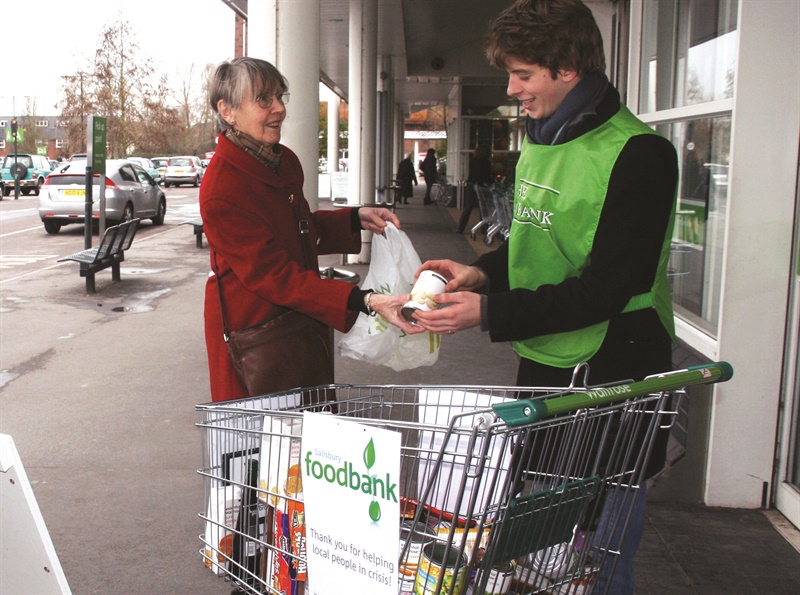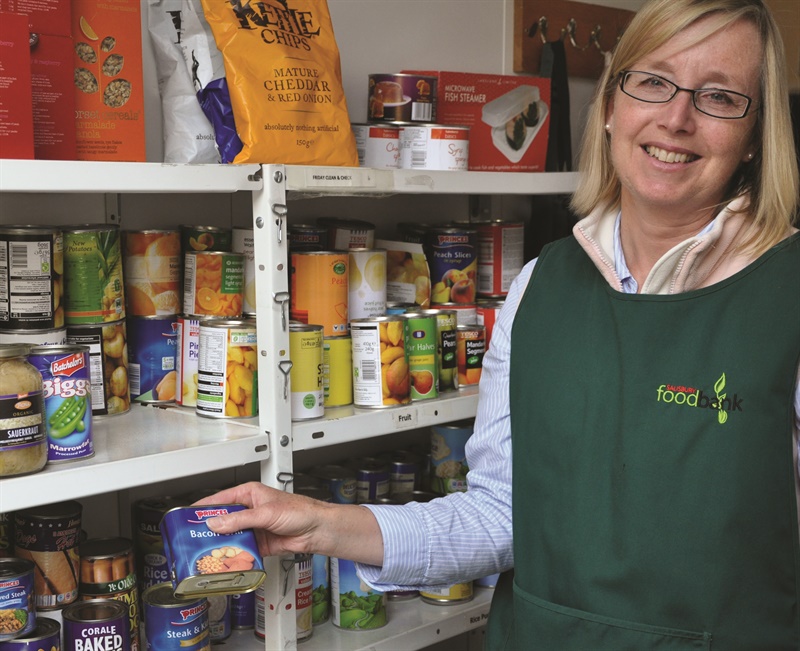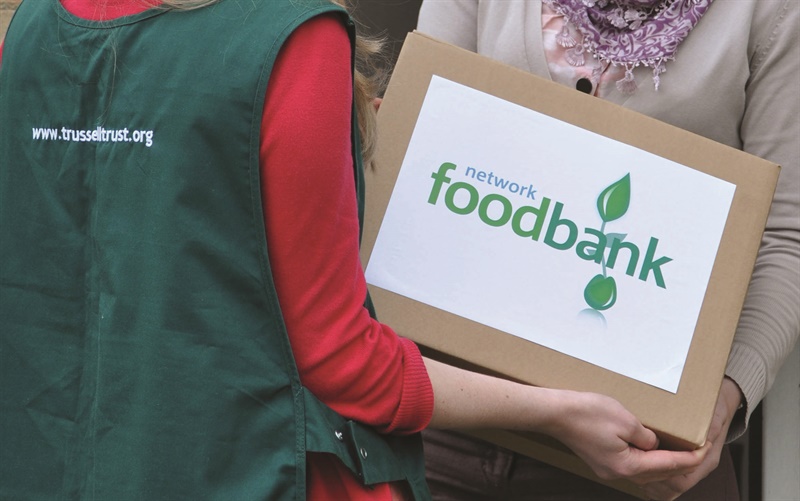15.04.14
Funding for food banks
Source: Public Sector Executive April/May 2014
The number of people turning to food banks in the face of welfare cuts is on the rise. PSE’s David Stevenson talked to Adrian Curtis, food bank network director at the Trussell Trust, to get the charity’s view on council-funded food banks.
Across England and Wales the number of food banks opening each week is on the rise, and so too is the number of people needing to access their services.
Figures from The Trussell Trust, an anti-poverty charity that runs the only nationwide network of food banks, show that 500,000 people were given three days’ emergency food during April-December 2013 alone – up from 347,000 during the whole of 2012-13, 129,000 during 2011-12, and 61,500 during 2010-11.

Adrian Curtis, food bank network director at the Trussell Trust, told PSE: “Historically, there have always been people who find themselves in a short-term crisis due to a sudden change in circumstances and they do not have access to funds to buy food for a short period of time.
“The first food bank we launched was in 1999 in Salisbury, so it isn’t something that is a new phenomenon. But what we have seen in the last few years is an absolutely huge increase in the amount of people being referred to us.”
A BBC Panorama investigation recently revealed that local authorities have spent nearly £3m in tackling food poverty in their communities over the last two years.
All 375 councils in England and Wales were asked if they were funding food banks and, if so, how much money was involved. Of the 323 councils that responded, 140 said they were providing funding. That equates to more than a third of all councils.
The Welfare Reform Act 2012 abolished community care grants, budgeting loans and crisis loans as of April 2013, and money from the discretionary Social Fund is now, instead, made available to unitary and upper-tier local authorities in England to enable them to provide new locally-administered assistance to vulnerable groups.
Independent food banks
The Trussell Trust noted that some local authorities have already approached its food banks (in London, Wales and a few other places) to explore how they can work together to support people who previously would have been helped by a Social Fund grant. “This is because with less funding available, the locally-administered replacements to the Social Fund are likely to help fewer people in need of temporary assistance,” said Curtis.
But Trust guidance states that “food banks are, and will remain, independent charities that partner with local communities and frontline care professionals to provide emergency food to people in crisis”.
Curtis said: “Our advice to food banks is: do not enter service level agreements with local authorities. We do not want to become a contractual arm of the welfare state. However, if a local authority values what the food bank is doing – and it forms part of their strategic objective to support people – and they want to provide some grant funding for that, then we are no different to any other charity.”
Despite the number of people turning to food banks and increasing council funding for this type of charitable support, the Department for Work and Pensions has constantly reiterated that food banks do not form part of the welfare system.

Local authorities in action
One local authority investing in food banks is Derbyshire County Council. There are currently 22 food banks in Derbyshire and figures for the Clay Cross Food Bank alone show that over the last year it fed 2,557 residents, compared with 944 in 2012 – an increase of 171%.
Cllr Dave Allen, cabinet member for health and communities at the Labour-run authority, said: “We firmly believe that the increase in the number of Derbyshire residents using food banks is certainly not a simple case of them taking advantage of the system.
“The rising cost of living, static incomes, changes to benefits and unemployment mean more people have hit a crisis that forces them to go hungry.”
In addition to the work it is already doing, the local authority has approved £126,000 to support Derbyshire food banks. It is also supporting appeals to encourage local people to volunteer and donate food and is arranging for some of its libraries and other council buildings to act as food collection points.
Sandwell, also run by Labour, has just made £75,000 worth of funding available to food banks. The cash-strapped council, which has to make £120m savings by 2016, said that previously people in need of help were directed to collect food parcels from West Bromwich food bank, but there are now so many people asking, that it has proposed to support similar operations across the borough.
One-off grants have, therefore, been made available to West Bromwich food bank which will receive £30,000; Smethwick food bank £24,000; Wednesbury food bank (Breaking Bread) £12,000; Tipton food bank (The Well) £6,000 and Rowley food bank (The James Project) to receive £3,000.
Cllr Steven Eling, deputy leader and cabinet member for council finances, told PSE: “I’m afraid the demand for food from food banks is increasing exponentially. It seems to be primarily linked with benefit sanctions and people having their benefits stopped for three months at a time.
“It worries me that we’re turning into begging bowl Britain. It really is sad to think of so many families having to ask for help. Getting people into well-paid work would help improve the situation.”
Sanctions
A new Policy Exchange report, ‘Smarter Sanctions’, revealed that each year as many as 68,000 people on Jobseekers’ Allowance have their benefits taken away by mistake and face unnecessary hardship as a result.
This figure refers to claimants who have failed, for example, to attend a Jobcentre interview for the first time, and receive a sanction which is appealed and later overturned.
The report also suggests that such financial penalties have contributed to the rise in the number of people using food banks – supporting Cllr Allen’s and Eling’s concerns.
Policy Exchange’s research revealed that under the current system, wrongly applied sanctions can cause hardship, stress, and other negative outcomes for the most vulnerable families.
About 874,000 adverse decisions were made between October 2012 and September 2013, but more than 146,000 of those were successfully appealed or reconsidered.
Some estimates suggest that 43% of those referred to food banks are there due to benefit stoppage or being refused a crisis loan. There is not currently an adequate safety net for those who are wrongly sanctioned.
Guy Miscampbell, economics and social policy research fellow, and author of the Policy Exchange report, said: “The welfare system must have a sharp set of teeth. That is why the sanctions regime is so important.
“However, it is clear that there are a significant number of people who have their benefit taken away from them unfairly. Four weeks without any money is driving people to desperate measures, including a reliance on food banks.”

Inquiry
The Trussell Trust’s Adrian Curtis told us that regardless of how many food banks it opens, the increasing number of people relying on its services is being driven by delays in welfare payments, and sometimes their removal.
He said: “We want to see a serious, independent inquiry into the reasons why people are being forced to come to food banks. The strain on people’s finances and change in welfare payments are drivers.
“We would like to see politicians and policymakers listen and look at the findings of an independent study.
“Hopefully this would lead them to address some of the causes driving people to choose between paying a bill and putting food on the table.”
Voucher distribution by type of crisis
29.69% – Benefit delays
18.45% – Low income
14.65% – Benefit changes
9.52% – Debt
8.50% – Other
4.29% – Refused crisis loan
4.25% – Unemployed
4.16% – Homeless
2.50% – Domestic violence
2.21% – Sickness
0.96% – Child holiday meals
0.82% – Delayed wages
 Adrian Curtis, food bank network director at the Trussell Trust
Adrian Curtis, food bank network director at the Trussell Trust